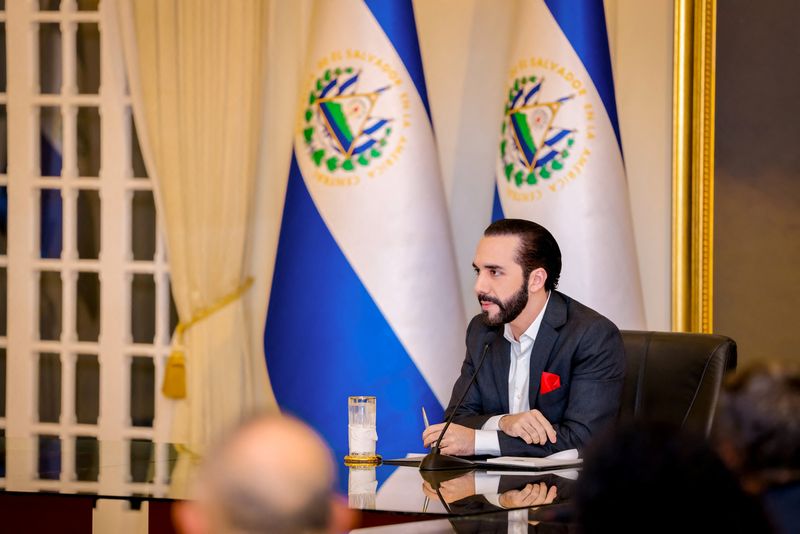SAN SALVADOR (Reuters) - El Salvador has seen "an alarming regression" of human rights protections during President Nayib Bukele's government, a trend that has intensified under a sweeping anti-gang crackdown, Amnesty International said in a report published on Tuesday.
Bukele has enjoyed widespread popularity since taking office in 2019, due in part to a state of emergency declared last year that has wrested control from criminal groups while eliciting criticism for the suspension of some constitutional rights.
In a 69-page report, Amnesty International detailed an increasingly punitive and repressive approach to public security during Bukele's rule, as well as threats to due process, the systematic use of torture and the mistreatment of detainees and prisoners.
"The deterioration in the guarantee of human rights that we have documented in El Salvador in recent years is extremely worrying," Amnesty International's Americas director Ana Piquer said in a statement.
Bukele, who requested a leave of absence from office last week to seek re-election in early 2024, has denied allegations of human rights violations and of agreeing to truces with gangs in exchange for prison benefits.
Reuters has not received a response on Amnesty International's report from Bukele's office nor the country's commissioner for human rights and freedom of expression.
Over three visits to the country between May 2022 and July 2023, the London-based NGO chronicled an increase in attacks on freedom of expression and association, as well as a lack of access to information around the management of jails, the attorney general's office, forensic services and the police.
Amnesty International said it documented 62 cases of human rights violations and conducted 83 interviews with victims and their families, human rights defenders, journalists and former justice officials.
Since Bukele's state of emergency went into effect in March 2022, security forces have arrested nearly 75,000 suspected gang members and released 7,000, according to official data. Human rights groups have reported 190 deaths and over 5,000 abuses related to the crackdown.
The situation constitutes one of El Salvador's "worst crises" since the end of its civil war that left some 75,000 people dead between 1979 and 1992, Piquer said.
